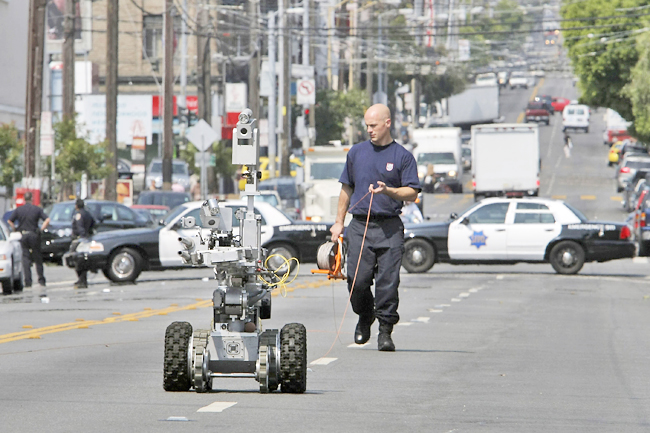SAN FRANCISCO (AP) – The liberal city of San Francisco became the unlikely proponent of weaponised police robots last week after supervisors approved limited use of the remote-controlled devices, addressing head-on an evolving technology that has become more widely available even if it is rarely deployed to confront suspects.
The San Francisco Board of Supervisors voted 8-3 yesterday to permit police to use robots armed with explosives in extreme situations where lives are at stake and no other alternative is available. The authorisation comes as police departments across the United States (US) face increasing scrutiny for the use of militarised equipment and force amid a years-long reckoning on criminal justice.
The vote was prompted by a new California law requiring police to inventory military-grade equipment such as flashbang grenades, assault rifles and armoured vehicles, and seek approval from the public for their use.
So far, police in just two California cities – San Francisco and Oakland – have publicly discussed the use of robots as part of that process. Around the country, police have used robots over the past decade to communicate with barricaded suspects, enter potentially dangerous spaces and, in rare cases, for deadly force.
Dallas police became the first to kill a suspect with a robot in 2016, when they used one to detonate explosives during a standoff with a sniper who had killed five police officers and injured nine others.
The recent San Francisco vote, has renewed a fierce debate sparked years ago over the ethics of using robots to kill a suspect and the doors such policies might open. Largely, experts say, the use of such robots remains rare even as the technology advances.
Professor in the School of Criminology and Criminal Justice at Arizona State University Michael White said even if robotics companies present deadlier options at tradeshows, it doesn’t mean police departments will buy them. White said companies made specialised claymores to end barricades and scrambled to equip body-worn cameras with facial recognition software, but departments didn’t want them.
“Because communities didn’t support that level of surveillance. It’s hard to say what will happen in the future, but I think weaponised robots very well could be the next thing that departments don’t want because communities are saying they don’t want them,” White said.
Robots or otherwise, San Francisco official David Chiu, who authored the California bill when in the state legislature, said communities deserve more transparency from law enforcement and to have a say in the use of militarised equipment.






